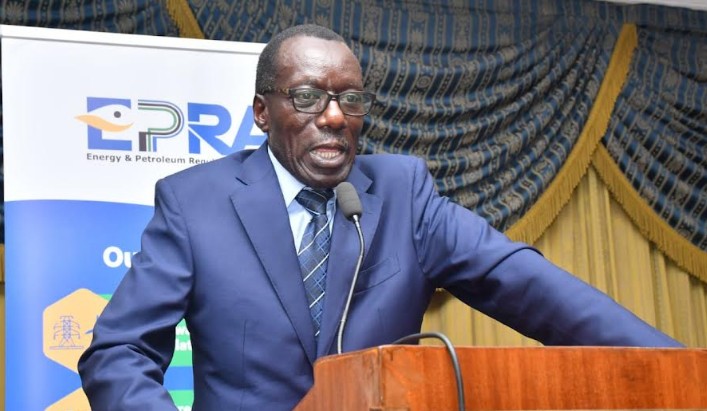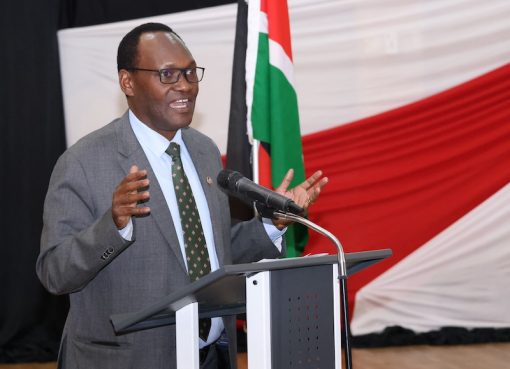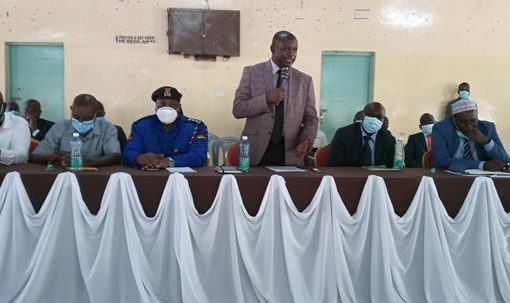The Energy and Petroleum Regulatory Authority (EPRA) has held a public workshop to debate draft energy regulations for 2025, which are aimed at addressing the operation of the energy system, reliability of electricity, guaranteeing a good supply and service, and reporting accidents and electricity issues.
The workshop, which took place in Nairobi, brought together players in the energy sector, policymakers and the general public, who discussed ways of enhancing regulations for the electricity sector.
While addressing the forum on behalf of the EPRA Director General Daniel Kiptoo, Dr. (Eng.) Joseph Oketch, Head of the Electricity and Renewable Energy Directorate, called for stakeholders to participate in the development of policies that ensure electricity supply stability, security and safety.
“The regulations will shape the future of our electricity sector by enhancing efficiency, reliability, and safety,” stated Dr. Oketch.
He restated that the proposed regulations under discussion include the Draft Energy, Electricity Reliability, Quality of Supply and Quality of Service Regulations, the Draft Energy System Operations Regulations and the Draft Electricity Incident and Accident Reporting Regulations.

Dr. Oketch noted that the Electricity Incident and Accident Reporting Regulations aim to create a structured framework for reporting accidents and incidents related to electricity supply.
He announced that licensees will be required to report accidents causing loss of life, injury, environmental damage or property damage within 48 hours. Additionally, affected entities must conduct investigations and submit detailed reports within 30 days.
To enhance efficiency, Dr. Oketch disclosed that EPRA will introduce an online reporting system and a 24-hour hotline for incident reporting.
Further, Dr. Oketch underscored the regulations and the objective setting, saying that the Energy Electricity Reliability, Quality of Supply, and Quality of Service Regulations are designed to enhance service efficiency and consumer protection by ensuring that electricity suppliers provide quality services.
“Licensees will be required to submit monthly and annual reports on reliability and service quality,” he reaffirmed, adding that regulations also establish penalties for failure to meet service standards, ensuring consumers receive timely power restoration in case of outages.
Providing an overview of how regulations are developed in Kenya, Eng. Jonathan Rono, an official from EPRA, described the process, which begins with identifying the need for regulations, as mandated by the Energy Act, followed by drafting the initial regulations in consultation with sector entities.
Once a draft is prepared, he explained that a Regulatory Impact Assessment is conducted to evaluate the economic, social, and environmental impact of the regulations.
“The public consultation phase, such as the workshop held today, allows stakeholders to provide input before the draft regulations are finalised,” said Rono.
Following public participation, he revealed that EPRA will incorporate feedback and submit the final draft to the Cabinet Secretary for Energy and Petroleum for approval. The Attorney General’s Office will then refine the legal language before forwarding the regulations to Parliament for ratification, and once approved, the regulations will be published and come into effect.
In his presentation, Eng. Tom Simiyu, another official from EPRA, reiterated that the Draft Energy Regulations aim to enhance electricity supply efficiency and ensure consumers receive reliable services.
According to Simiyu, they set performance benchmarks for generators, transmitters, and distributors, requiring regular reporting on system reliability, outages and response times.
“The regulations mandate strict timelines for power restoration, impose penalties for non-compliance, and standardise voltage levels to prevent appliance damage.
Additionally, they introduce consumer redress mechanisms, allowing complaints and compensation claims,” he outlined, pointing out that EPRA seeks to use these measures to strengthen monitoring, protect consumers and improve Kenya’s power infrastructure.
Meanwhile, by setting clear performance standards, strengthening system operations, and enforcing strict accident reporting, EPRA aims to improve service delivery, protect consumers, and ensure accountability among energy providers.
With proper implementation, these measures will contribute to a more stable, secure, and consumer-friendly energy industry, aligning Kenya’s power infrastructure with global best practices.
By Clinton Ng’iela





